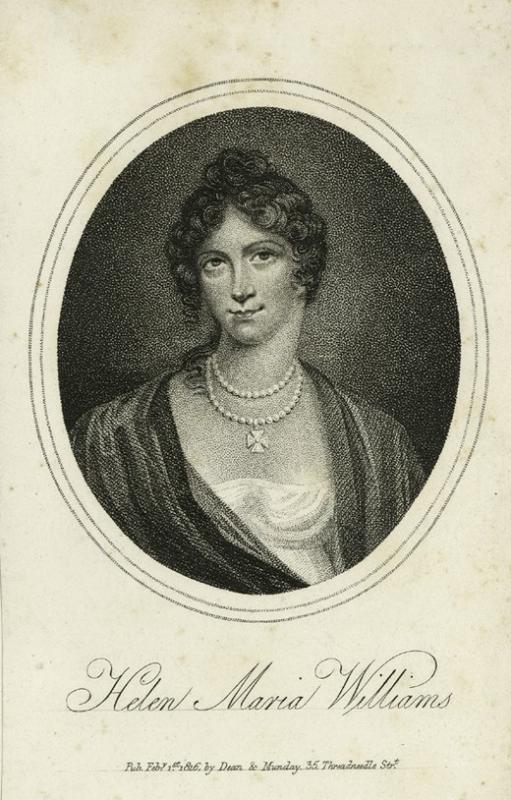Quote
"Women, as well as men, are admitted to these coffee-houses; for the English idea of finding ease, comfort, or festivity, in societies where women are excluded, never enters into the imagination of a Frenchman."
Links to the Encyclopedia:
Keywords
Do not imagine, however, that the emigrants have lot nothing behind them but public spirit and public virtue; and that all splendour, taste, and gaiety have fled with them to Coblentz. There are at present no less than twenty theatres at Paris, which are well filled every night ; and at most of which you see charming acting. The grace, the sprightliness, the naïveté, the easy natural movements of their comic actors far surpass any thing our London theatres can boast. Let us resign to the French the palm of comedy, since the laurels of tragedy are all our own. - There is but one Siddons, one transcendant genius, who has every passion of the human heart at her command, and the sublime graces of whose performance it is impossible not to feel, but no less impossible to describe.
"Gestures, that marks with force, and feeling fraught,
A scene in silence, and a will in thought ;
All perishable, like th' electric fire,
But strike the eye, and as they strike expire ;
Incense too pure a bodied frame to bear,
Its fragrance charms the sense, and melts in air."
Mademoiselle Clairon, the celebrated French tragic actress, not contented with the shame she had acquired, once attempted contrary to the advice of her friends, to act the part of Merope, in Voltaire's tragedy; a part which Madame Dusmenil, the rival of Mademoiselle Clairon, had acted with extraordinary success. A friend of Mademoiselle Clairon's, who supped with her after the performance, said to her, "You have very fine tragic powers, but you must absolutely renounce the part of Merope ; for there Madame Dusmenil is far superior to you." "Ah oui !", said Mademoiselle Clairon, heaving a deep sigh, " La misérable! - Elle a eu un enfant !"
Is it a proof of the superior refinement of the French, that they are fonder of theatrical amusements than the English? Or does it arise from that love of gaiety and pleasure, which is so much more prevalent in the French than the English character? A London tradesman, when the business of the day is over, sits down contentedly with his wife and children, and reads the newspaper. But a bourgeois at Paris usually concludes the day at one of the spectacles, and this without injuring his circumstances ; as a taste for those amusements being universal at Paris, there are spectacles adapted to every purse, and pleasure may be had at a very cheap rate.
There are coffee-houses on the Boulevards, where the people, while they drink their wine, le monde, or orgeat, are entertained with a play gratis. Women, as well as men, are admitted to these coffee-houses ; for the English idea of finding ease, comfort, or festivity, in societies where women are excluded, never enters into the imagination of a Frenchman.
Not that the same gallantry, the same constant attention to women now prevails which existed before the revolution. Like Moliere's Doctor, "On a changé tout cela." The men, engrossed by political concerns which involve the fate of their country, and on which their own lives and fortunes depend, have no longer leisure or inclination to devote as much time as they did formerly to the women ; and I think the French ladies stand a fair chance of being soon almost as much neglected as the English. Not only the age of chivalry, but the age of petits maîtres is past.
Sources
Text : Helen Maria Williams, Letters from France: containing many new anecdotes relative to the French Revolution, and the present state of French manners. Boston: Printed [by J. Belknap and A. Young] for Thomas and Andrews, David West, and E. Larkin, Jun, 1792, Letter XII, Vol. II, p. 52-54.
